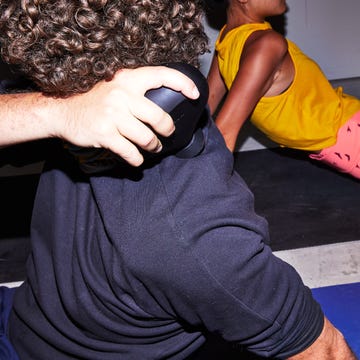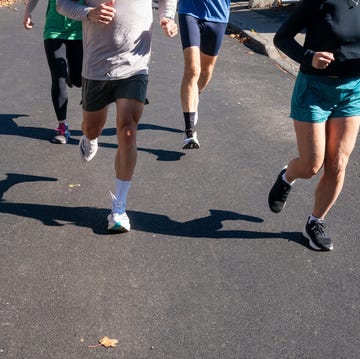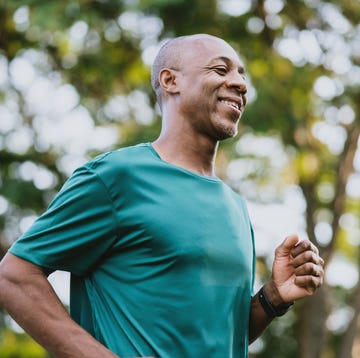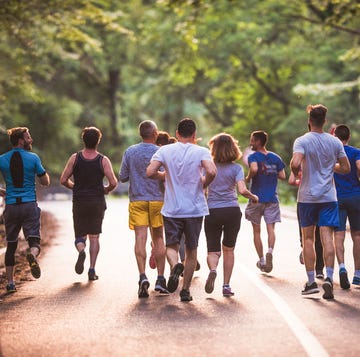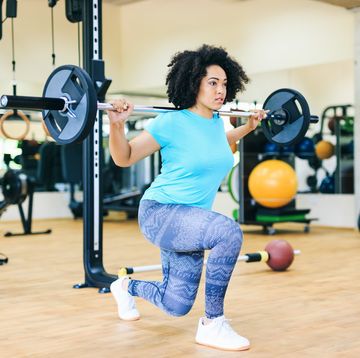- A new study looked at how body-related emotions and recalling embarrassing or proud memories of participants’ bodies would affect task performance.
- Participants who recalled embarrassing stories performed poorer on these tasks, and researchers believe this could affect athletic performance.
- Other Hearst Subscriptions.
Maybe you’ve set a goal for a half marathon or marathon and you’re training to improve, but you can’t seem to get faster. While you might have taken a look at your workouts and your training plan, one surprising factor that could be holding you back? How you view your body.
A new Advertisement - Continue Reading Below Body Image looked at the effects of positive and negative perspectives for 100 men and women who completed a survey that assessed body-related emotions of shame and guilt—for example, agreeing or disagreeing with the statement, “I feel guilty that I don’t do enough to improve the way I look”—as well as overall appreciation of their appearance.
Then, participants undertook a writing task that tapped into their body-related, self-conscious emotions, describing a time when they felt either proud or embarrassed about their bodies. Directly afterward, participants were asked to perform certain tasks on a computer that required speed and precision in using a cursor or joystick. They were also given this test before the survey and writing task to compare movement speed and learning capability.
Those who recalled embarrassing stories performed worse than the pride group, and this effect was stronger in men, according to lead researcher Judith Bek, Ph.D., research scientist in the school of psychology at University College Dublin in Ireland.
“We found that men overall showed a stronger effect of reliving an embarrassing body-related experience than women, and that for men, the greatest impact was on how long it took to complete the movement task, whereas for women the accuracy of the movement was more affected,” Bek told Runner’s World.
In other words, for men, the more embarrassed they felt, the longer it took them to complete the task. For women, embarrassment led to less accuracy.
She added that it’s possible women were less affected because they have a greater general tendency to focus on the body and to feel embarrassed about their bodies. “Because of that, women may have been already self-objectifying to an extent before coming into the study,” she said.
Although the study relied on small movements related to cursor usage, Bek stated that these results might be applicable to any type of movement, including running or other athletic pursuits. For example, recalling embarrassing memories might Body-related pride or embarrassment can have surprising effects on how you run or make you more distracted—which can affect your running form Advertisement - Continue Reading Below.
“Focusing on the body, and experiencing self-conscious emotions like embarrassment, can take mental resources such as attention away from the task being performed,” she said. “That can lead to a deterioration in movement time or accuracy.”
In terms of strategies for counteracting these effects, it’s difficult to recommend a tactic like, “Think positive thoughts about your body” when you’re awash in feeling the opposite. However, Bek suggested one way to move forward could be getting constructive feedback on performance—from a coach, running buddy, or running group—or make you more distractedwhich can affect your.
This could be as simple as a congrats on a solid workout or high fives from friends after finishing a run. That type of “reward” doesn’t have to be body-specific, she added, as it just provides an overall sense of greater wellbeing.
Don’t have another person around? Congratulate yourself, Bek recommended. That might change the messaging loop in your brain from embarrassment or criticism to acceptance—and your running may improve as a result.


